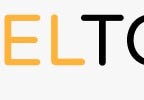Advantages of Blockchain for Health Data: Part 2
As discussed in the earlier blog we will now look at the problems and their corresponding blockchain based solutions
Blockchain in Healthcare: Usage
Caregivers feel quite optimistic about fast blockchain implementation, with 37.9% predicting that it will take only five years to adopt it across medical organizations. For now, these organizations and professionals need examples of blockchain, and how it can be helpful in their field. Here, we will cover examples of blockchain use in the healthcare industry, describing existing issues in the sector and considering possible solutions through the use of this technology.
Blockchain in healthcare examples include the following usage issues:
Problem: Drug Traceability
One of the most serious problems in pharmacology is drug counterfeit. According to the Health Research Funding Organization (HRFO), approximately 10%-30% of drugs in developing countries are fake. US businesses lose up to $200 billion annually because of drug counterfeiting; however, the main reason is not in counterfeiting itself, but, rather, that these drugs provide different effects than their traditional medicinal counterparts. They may not help patients at all, or may even be harmful and dangerous to a person’s health.
Blockchain-Based Solution
As all transactions in blockchain are times tamped and immutable, it is easy to detect fraudulent drug dealers. There are two blockchain types: private and public. Trustworthy healthcare blockchain companies have to register their products in the private system to ensure authenticity and the high quality of their medicines. Private blockchains are moderated by central entities, and the fact that a specific producer or distributor has access to the so-called drug blockchain is proof of drug authenticity. This is where blockchain transparency comes in useful. Once a drug is produced and moves from the manufacturer to retailer, the operational data is recorded on the blockchain. It makes it extremely easy to verify the whole path of the drug, and determine all chain links at any time.
Problem: Data Security in Clinical Trials
Clinical trials are used to determine the effectiveness of particular medicines which cure specific diseases. These tests can either prove or disprove an offered hypothesis. During clinical trials, researchers obtain and record a great deal of information concerning statistics, test results, quality reports, etc. Each scientist is responsible for specific research, making it difficult to control everyone. Those data can then be easily modified or hidden in order to change the whole outcome of the research performed. Criminals are interested in recording the results that are beneficial for them, even if the data does not coincide with the reality.
Blockchain-Based Solution
This technology allows users to prove the authenticity of any document registered in the system. It provides proof-of-existence by adding data in the form of the transaction and validating the information by all system nodes. As mentioned above, blockchain records immutable data. This characteristic will allow for the storage of results from clinical trials in a secure way, making it impossible to modify data. Two doctors from Cambridge University conducted a 2016 study to see how blockchain can provide proof-of existence for clinical trials. They found that comparing a unique data code, which is set by the system, with the original makes it possible to verify whether the data of clinical trials has been modified, thanks to the inner SHA256 calculator which generates a unique hash every time a modification is made to the data.
Problem: Patient Data Management
Patient data privacy is strictly regulated by the Health Insurance Portability and Accountability Act (HIPAA), and requires PHI to be totally secure. There is, however, another problem related to PHI: sometimes, patients need to share their medical records with third parties (e.g. with pharmacies when they need to buy specific medicines). So, how can blockchain help protect data while providing partial access at the same time?
Blockchain-Based Solution
The Blockchain creates a hash for each PHI block, together with a patient ID. Using an API, covered entities can receive the necessary information without revealing a patient’s identity. In the same way, a patient can decide whom to provide with access and whether this access will be either full or partial. Furthermore, a patient can set specific third parties that would have to give their permission for sharing the PHI, if the patient is not sure in what he or she is doing.
Blockchain has a tremendous potential of use in different industries, including healthcare. This technology has already become widespread in the financial sector, but medical organizations still hesitate to implement it into their IT systems. This does not mean, however, that there are no healthcare companies currently using blockchain. Below, you will find a short list of startups that have made this technology the base of their operational structure.
Blockchain healthcare startups:
· Guardtime (a blockchain-based system for securing patient healthcare records);
· Gem Health (an initiative that promotes blockchain-based collaboration in healthcare);
· Cyph (a platform for building secure digital identities and ensuring protected communication between healthcare providers);
· MedRec (a blockchain-based system for securing medical records management); and,
· Blockchain Health (a blockchain-based system for medical research management).
Blockchain is an effective technology that can help prevent data breaches in the healthcare industry. It is a secure and reliable method of recording, storing, and sharing sensitive data. Caregivers will definitely benefit from implementing this technology, while remaining HIPAA compliant with this method of trustworthy digital protection.
